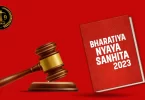JUSTICE SUVRA GHOSH
Born on 23rd April, 1968,
Justice Suvra Ghosh completed her 10th and 12th standard, I.C.S.E. and Higher Secondary (Hyderabad Board), in 1983 and 1985, respectively. She was selected for the National Merit Scholarship, and the State Merit Scholarship in 1985.
After completing her BA LL.B. (5 years’ course) from the University of Calcutta in 1991, she appeared in the West Bengal Judicial Services Examination in 1992, and joined the West Bengal Judicial Services in 1994 as a Civil Judge (Junior Division), then termed as “Munsif”.
She was promoted to the Higher Judicial Services (District Judge Entry level) in 2009 through Limited Competitive Examination held by the High Court of Calcutta, where she secured first position in the said examination.
She worked in various capacities including Deputy Secretary-cum-Registrar, State Legal Services Authority, West Bengal; Joint Secretary, Department of Law, Government of West Bengal; District and Sessions Judge in the districts of Birbhum, 24 Parganas (North) and Darjeeling; Chief Judge, City Sessions Court, Calcutta; and Secretary, Judicial Department, Government of West Bengal.
On 19th November, 2018, she was elevated to the Bench of the High Court at Calcutta as an Additional Judge, and was appointed as a Permanent Judge of the Calcutta High Court on 4th May, 2020.
Notable Judgments
In June 2019, the Bench of the Chief Justice Thottathil B. Radhakrishnan and Justice Suvra Ghosh, though refused to issue any specified directions in a PIL filed against the ongoing doctors’ strike in West Bengal, reminded the ‘striking’ doctors about the Hippocratic Oath, and called upon them to reconcile. “It is definitely for the doctors to now turn themselves to the reconciliatory mode in the larger interest of the suffering people and answer their oath which they have taken while they became doctors.”
In July 2019, a Division Bench of Justice Ghosh and Justice Sanjib Banerjee, held that the Calcutta High Court’s administration had erred in ordering a Railway Magistrate to be suspended and to be forced to retire, after he passed an order rebuking the railway officials for delays in trains. Holding that the administration’s ruling was “disproportionate” and “shocking”, the Court ordered a fine of `1,00,000 to be paid by the High Court administration, and reinstated the Magistrate. The ruling attracted wide attention, as it was reported as a case of the Calcutta High Court fining itself.
In December 2019, a Division Bench of Justice Ghosh and Justice Joymalya Bagchi, while observing that there was no statistical data to conclusively establish that imposition of death penalty would definitely lead to reduction of crime committed by others in the society, commuted an order of death penalty to life imprisonment, in the case of a man convicted for possession of heroin above commercial quantity.
The Division Bench of Justice Ghosh and Justice Bagchi, in December 2019, also directed the State Government to expedite the process of video linkage between correctional homes, courts and police stations, to ensure seamless and quick production of undertrials via video linkage.
In another case in January 2020, a Division Bench of Justice Ghosh and Justice Bagchi, held that indulgence in ‘sting operation’ purportedly in public interest does not extinguish the criminal liability of an individual.
In January 2023, the Full Bench of the Calcutta High Court at circuit bench Jalpaiguri, comprising Justice Joymalya Bagchi, Justice Suvra Ghosh, and Justice Krishna Rao, held that an accused who is under detention under the provisions of the NDPS Act, cannot be released automatically on statutory bail on the expiry of 180 days, which is prescribed under section 36A(4) of the Act, until and unless he makes an application either in written or oral form.





